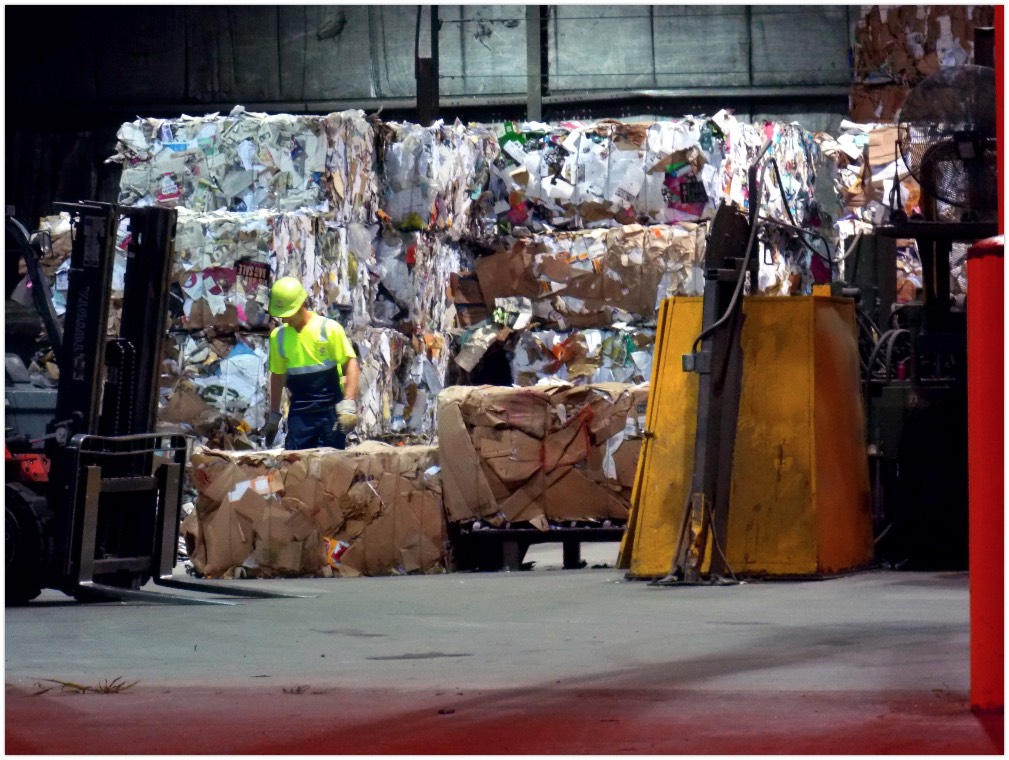Australia is one of the biggest rubbish generators across the globe. Over the years, this problem of waste production continuously swells up, consequently generating around 67 million tonnes of rubbish in 2017. Of that amount, only 37% was recycled.
Australia is, thus, facing a recycling crisis. We create more waste each year than we could ever recycle despite exhausting our efforts to.
How It Started: Asian Countries Closing Their Doors to Imported Rubbish
China was our biggest market for recyclable goods. Every year, we send off 4.5 million tonnes of rubbish to China and other Asian countries for recycling. Exporting recyclable rubbish has somehow alleviated the piles of rubbish we’ve been generating since long ago. It greatly reduced the volume of recyclables we have to deal with within the country.
In 2019, however, China decided to send waste recovery and recycling businesses worldwide, including those in Australia, in distress. China decided to close its doors to low-grade imported rubbish. It follows then that millions of tonnes of Australian recyclable rubbish would end up piling up in our country, waiting for reprocessing. Approximately 1.3 million tonnes of Australian waste ended up back in our country shortly after the imposition of the law. That’s about 4% of our recyclable waste.
The decision also entailed less market for recyclable waste and reduced income from said rubbish. Other Asian countries like India, Malaysia, and Thailand took in China’s footsteps. They also regulated the amount of recyclable material they will accept. As a consequence, our markets for recyclable waste dwindled, producing less competition for plastic, metal, glass, and paper recyclables.
The Aftermath: Australian Recycling Crisis
Since Asian countries restrict the amount and quality of recyclable waste they would accept, you might think that we’ve taken measures to reduce the amount of waste we’re generating. Well, you’re not wrong.
The Australian government has made every effort to minimise the recyclable rubbish we produce. Yet, we still have a low recovery rate compared to other developed countries. In spite of the import ban in China and other countries, our recyclable rubbish generation continued to skyrocket by 5%, resulting in 4.4 million tonnes of recyclable waste.
Recycling Statistics
Metal, masonry materials, cardboard and paper materials, and glass are some of the highly recycled items in Australia. To break down how much of these rubbishes are recycled:
- Scrap metals (90%)
- Masonry materials (72%)
- Cardboard and paper (60%)
- Glass materials (57% glass)
Unfortunately, plastic wastes only have a 12% recovery rate, which is extremely low. In 2018, we’ve generated over 3.4 million tonnes of plastic rubbish, but we’ve only recycled 320,000 tonnes (9.4%) of these plastics. Of that amount, we reprocessed an estimated 46% or 145,700 tonnes of that amount in the country and exported 54% or 174,300 tonnes for reprocessing.
Recyclable Rubbish Going to Landfills
Our limited recycling facilities will soon be unable to handle the recyclable wastes that we continuously generate. Waste recovery and recycling centres are almost full, and without enough markets for these recyclable materials, we’re caught up in an abortive rubbish collection.
Aside from this problem of inadequate recycling centres, kerbside recycling also becomes futile when the collected recyclables become contaminated. Thus, even if you place your rubbish in the right bin, it won’t be recycled if they are adulterated. Consider broken glasses, corroded metals, wet papers and cardboard materials, and food- or liquid-contaminated materials non-recyclable.
As a result, a significant percentage of our recyclable wastes end up in landfills. In a week’s time, Victoria sent thousands of tonnes of recyclable rubbish, equivalent to 780 rubbish trucks, to landfills. That’s how we are handling our recycling crisis in the country. We waste valuable resources by recovering only a little of the waste we produce. Moreover, we’re also consuming a significant amount of space in landfills that otherwise residual wastes can take up.
How are we dealing with Recyclable Rubbish?
In the face of Australia’s recycling crisis, our government never ceases to deal with the rubbish we generate every year. One of our efforts to handle the crisis is to ban the export of recyclable wastes. Through this, the Australian government aims to take responsibility for our own rubbish.
The export ban aims to achieve a circular economy where reusable and recyclable materials are continually used. It also seeks to develop the recycling facilities we have in place to increase our waste recovery rate to 80% and create 9.2 jobs for every 10,000 tonnes of waste recycled. In line with this, the government also plans to build a multimillion recycling infrastructure to divert approximately 10,000 tonnes of recyclable waste from landfill.
Conclusion
Paul’s Rubbish Removal is your reliable rubbish removal company in Sydney. We understand that we are facing a recycling crisis right now due to the high volume of waste we produce and the low recovery rate of these rubbishes. That’s why we always strive to take care of the environment as we remove rubbish in our homes and offices.
We have partner recycling facilities ensuring the diversion of all of the recyclables we collect from landfills. We can handle any size and type of rubbish right from collection, segregation, transportation, recycling, through to the disposal. We also guarantee efficient, quality, and cheap rubbish removal services.
Call us now at 0407 125 125 to get a free quote or email us at info@paulsrubbish.com.au.







